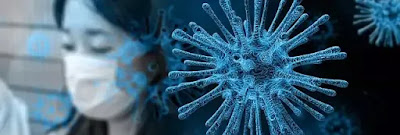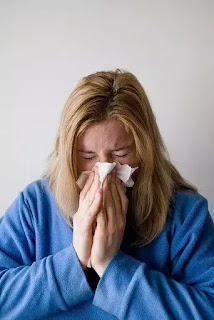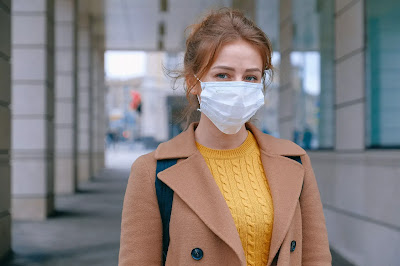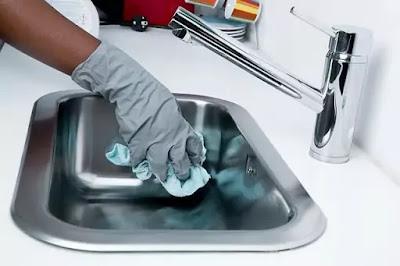Coronavirus symptoms and prevention | Prevent COVID-19
Look for coronavirus symptoms and preventions here. Remember, prevention is better than cure. Follow social distancing, wear a face-mask, wash your hands frequently.
Recently a deadly disease named coronavirus, which originated in China became a global concern.
It is likely to be originated from the seafood and meat market in Wuhan, China, in December. It has now spread to many countries of America, Europe, and almost the whole of Asia.
WHAT IS CORONA VIRUS – CORONAVIRUS SYMPTOMS AND PREVENTION
Coronavirus, also called COVID-19, is due to an accumulation of viruses that causes great ranges of illnesses, from the common cold to more severe diseases.
Some severe diseases include Middle East Respiratory Syndrome (MERS-CoV), Severe Acute Respiratory Syndrome (SARS-CoV).
A disease named novel coronavirus is also among newly exposed virus, not previously found in humans.
Coronaviruses hold communicative disease that spreads between animals and people. Detailed research explains Civet cats were the source of SARS-CoV, and Dromedary camels were that of MERS-CoV.
Several other forms of coronavirus, being circulated in animals and are not yet diffused to humans.
Common coronavirus symptoms and prevention of the COVID-19 are listed here. They include respiratory symptoms, fever, cough, shortness of breath, and breathing difficulties.
Some severe coronavirus preventions are:
- Wash hands regularly
- Cover mouth and nose while coughing and sneezing
- Avoid close contact with people showing symptoms of the infection
- Eat homemade, clean, and freshly prepared meals rather than from stalls and markets
- Favor vegetarian food rather than any other animal-oriented food
HOW IT SPREADS – Coronavirus symptoms and prevention
1. Person – to – Person spread
The virus, however, is spreading mainly from person-to-person. People who are in close contact with one another.
Besides, by respiratory droplets of an infected person-produced while coughing or sneezing.
People get in contact with infected people as in the above two situations. They tend to be at higher risk of developing the disease.
However, reports suggest that these viruses can be found in the air, spread through infected people, animals, or contaminated objects.
2. Can someone spread the virus that is not sick?
Not really, but the people who are symptomatic and are sick. However, people affected may show symptoms lately.
Therefore, an appropriate distance is required to prevent any diffusion of infection.
There are several types of coronavirus which are still not discovered. Thus, we should avoid close contact and should focus on a more clean and hygienic lifestyle.
3. Spread from contamination
Experts found that this virus can survive up to 12 hours on metals, 9 hours on clothes, and some minutes on hands. Accordingly, it is mandatory to wash hands frequently.
It is easily possible for a contaminated object or place to possess such dangerous virus effects, and once came in contact, quickly diffuse to others.
One can accidentally get their hands on the contaminated surfaces of objects or places. And then, touching your nose, mouth, or eyes with those hands, without cleaning, increases the risk of infection.
What is the rate of spreading this disease?
It depends vastly on how fast such infection viruses spread from one person to another. Some viruses are highly contagious (quickly spread), while some are not.
It also depends on the factor of whether the spread is continuous or stagnant between some intervals.
The virus causing COVID-19 seems to be contagious and spreading sustainably (continuously) in the community in some affected areas.
The major causes of COVID-19 are due to a community spread. Community spread implies infection by the disease spreading in a particular geographical area.
It also includes those people infected, but their source or where they became infected is unclear.
CORONAVIRUS PREVENTIONS
Try to avoid contact with sick people or stay at home if you are sick.
If you are sick with COVID – 19 or show symptoms, like fever, dry coughing, breathing problem, caused due to the infecting viruses, follow the below steps to prevent the disease from spreading in your home or community.
1. Stay home also take prescription
Stay home: People suffering from COVID-19 should restrict their outer activities to prevent the disease from spreading.
However, you should seek medical treatment covering your mouth, nose, and eyes.
Avoid Public: Do not go to any public place like school, work, or park. Avoid public transportation by preventing traveling in public buses, taxes, etc. Instead, opt for discrete vehicles or cycle to ride and avoid diffusion of COVID-19.
Also, avoid public places and contaminated places because they are the most prone areas for coronavirus.
2. Be separate from others at home
Stay away from everyone: You should isolate yourself to a room if you find symptoms of COVID-19. Also, use a separate bathroom, washroom, bed, if possible.
Reduce contact with animals: limit contact with animals, whether they are your pet or any random animal.
If you are suffering from COVID-19, it is mandatory to reduce contact with everyone around you. Since they are also likely to discover the disease, we should maintain an appropriate distance from them.
If possible, take the help of another person, either from your family, friends, colleagues, to take care of your pets while you are sick.
You can ask your neighbor to help with it. Reduce contact with animals like snuggling, being licked, and sharing food with them.
If you, being sick or not, have to care for your pet, then remember to wear a mask and wash your hands before and after your interaction with your pets.
3. Call the doctor before a visit
Call ahead: If you have any medical appointments, tell them about your health conditions previously.
Also, tell them about your symptoms that indicate COVID-19. It could help them take preventive steps to restrict the further transmission of the disease.
4. Wear facemask during sickness
When you are with other people, outdoor for any work, or moving to the health care center, remember to carry a mask on your face and avoid contact with anyone.
When someone else is sick: If any of your mate or family member is sick. And cannot wear a face mask due to any cause. Then, you must cautiously apply a face mask while visiting them. And also, wash hands afterward, in case of any close contact.
A simple facemask can easily prevent its presence as they are microns. It means their range is near a micro object, and we can avoid it through simple, clean, and well-washed clothes.
Take your clothes with care to avoid transmission of the infection. And remember to wash them and dry them in sunlight, which will kill the virus.
5. Cover your coughs and sneezes
Cover yourself: Cover your mouth and nose with a tissue or any piece of cloth when you cough or sneeze.
Do not cover it with your hands, and if you do so, wash your hands properly.
Dispose-off: Dispose-off your used tissues in the lined trash can, and do not throw them here and there, even in your room.
Wash hands: It is mandatory to wash your hands while dealing with any infected product like used tissues, used clothes, when covered coughing or sneezing with hands, going to the bathroom, before having and preparing food.
Use soap and water for proper hand wash. And try to keep your objects separate when you are sick and may have COVID-19.
Limit touching: Avoid touching your nose, mouth, or eyes with unwashed hands as much as possible.
6. Avoid sharing personal objects
Things you must not share with others while suffering from such disease (COVID-19) includes dishes, glasses, or any other utensils, along with towels, bed, clothes, etc.
Wash things after use: After using your objects, wash them frequently with soap to remove the effects of infection. Also, try to clean your room especially, affected surfaces repeatedly. It is mandatory to keep utilized clothes and objects clean to disinfect them.
Household cleaning: try to use an appropriate and adequate amount of cleanser to wipe your place. Also, remember to wear gloves and provide proper ventilation while using the products.
7. Eat and drink mindfully
Avoid cold and iced products: It is critical to eliminate iced products like ice-cream, cold drinks.
These products include minimum temperature, which provides a healthy environment for the virus to sustain.
Therefore, keep away ice-candy and such products for better precautions.
Take warm water: According to experts, the virus cannot survive high temperatures, from 25-27 degrees.
Thus, it is helpful to take warm water, which would decrease the risk of being infected by the coronavirus.
Also, gargle with warm and salted water to prevent the virus from reaching the lungs.
Eat vegetarian food: Avoid meat and eggs for some time to prevent the risks of coronavirus. Instead of non-vegetarian food, emphasize vegetarian food as non-veg food found to be at higher risk of contamination.
Vegetarian food will not only eliminate the risk of infection but will also increase your immunity to fight coronavirus.
Sunlight is fit for you: Since the virus cannot sustain at high temperatures, it is good to bask in the sunlight for some time to evade the virus infection.
It is beneficial to keep your used clothes and objects washed. Make them dry in sunlight to kill all kinds of viruses to prevent corona.
We bring you the material to take preventive measures to avoid one more patient of COVID-19. Eat healthily and afresh. Follow all such steps to reduce the risk of transmission of the disease.






